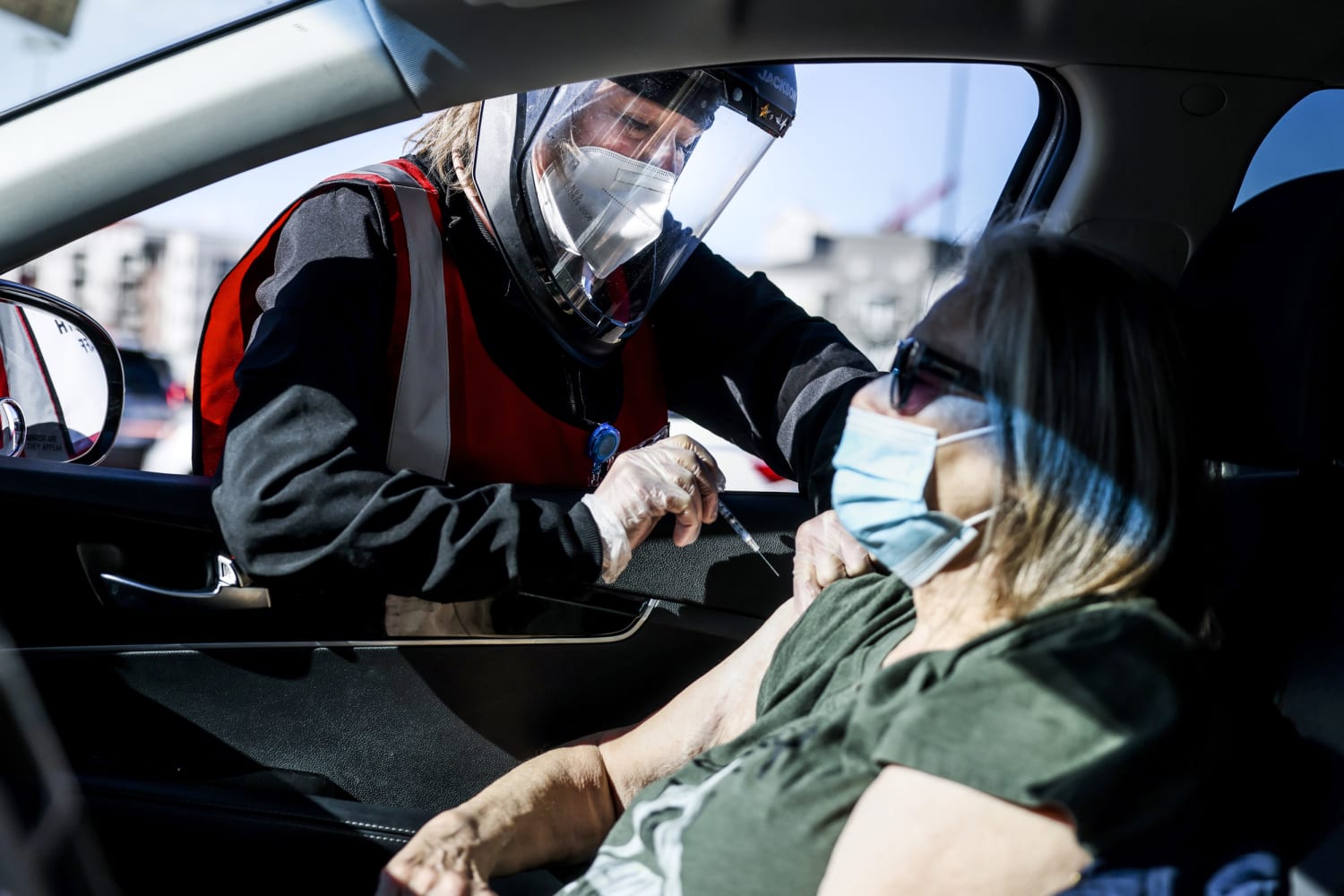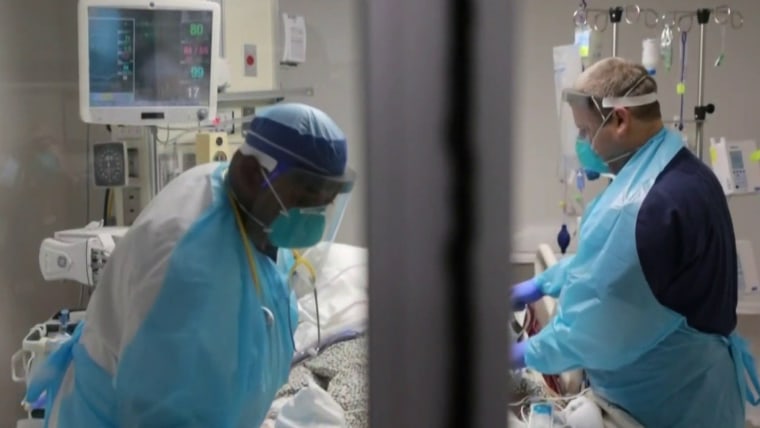The Covid vaccines, while holding up strong against hospitalization and death, offer little protection against long Covid, according to research published Wednesday in the journal Nature Medicine.
The findings are disappointing, if not surprising, to researchers who were once hopeful that vaccination could significantly reduce the risk of long Covid.
Full coverage of the Covid-19 pandemic
Compared to an unvaccinated individual, the risk of long Covid in a fully vaccinated individual was cut by only about 15 percent, the study found.
“The vaccines are miraculous at doing what they were designed to do” — that is, prevent hospitalization and death, said Dr. Ziyad Al-Aly, a clinical epidemiologist at Washington University in St. Louis and the lead author of the study. But they “offer very modest protection against long Covid,” he said.
The Covid vaccines were developed early on in the pandemic, long before doctors, scientists and patients knew of the existence of long Covid. They were never designed to protect against it, said Al-Aly, who is also chief of research at the V.A. St. Louis Health Care System. “We need to revisit them now that we know that the virus can also produce long-term consequences.”
Dr. Greg Vanichkachorn, director of the Mayo Clinic’s Covid Activity Rehabilitation Program in Rochester, Minnesota, who was not involved with the new study, said the results were not “too surprising.”
“We know that the majority of folks with long Covid have not had severe infections,” he said.
The study looked at national health care data from the U.S. Department of Veterans Affairs and included medical records of nearly 34,000 vaccinated people who had breakthrough Covid infections and more than 113,000 who were unvaccinated when infected with Covid from January 2021 through October 2021. People were considered fully vaccinated if they had received two doses of either the Pfizer-BioNTech or Moderna vaccine or a single dose of the Johnson & Johnson vaccine.
The researchers followed up six months post-infection to see whether patients had lingering symptoms. While the protection against long Covid in general was relatively small, vaccines were more effective at preventing some of the most life-threatening long Covid symptoms: Vaccination reduced the risk of lung disorders by nearly 50 percent and blood-clotting disorders by 56 percent, compared with those who were not vaccinated.
Al-Aly noted that a breakthrough case does not mean a person will develop long Covid — only about 10 percent of breakthrough cases will result in the condition — but with so many people infected, this still translates to a large number of people.
The data did not show whether a person was boosted, but Al-Aly said he doesn’t expect boosting to make a big difference in terms of vaccines protecting against long Covid, nor variants like omicron.
Download the NBC News app for full coverage of the Covid-19 pandemic
Vanichkachorn agreed. “Unfortunately, I do not think boosting will do much to prevent long Covid with the vaccine,” he said. “We have many patients with breakthrough infections who are as vaccinated as possible. We also have not seen much of a difference between variants with long Covid symptoms.”
This is not to say that vaccines are not an important tool in the fight against the pandemic, experts say.
Boosters, in particular, offer the most protection against severe acute Covid and reduce the risk of complications, said Dr. Jason Maley, director of the Critical Illness and COVID-19 Survivorship Program at Beth Israel Deaconess Medical Center in Boston.
But for long Covid, they’re not necessarily the solution. “I don’t believe vaccination is the key to eliminating long Covid,” Al-Aly said. “We really need to think about additional layers to protect us from the long-term consequences of this virus.”
New approaches to preventing long Covid
Covid cases are once again rising again in the U.S., driven now by an omicron subvariant called BA.2.12.1, according to the Centers for Disease Control and Prevention. Even so, public health measures such as masking and social distancing have largely fallen away.
Al-Aly said he doesn’t fault people for that.
“It isn’t pragmatic to tell people to mask for the next 10 years,” he said. But it does underscore the need to improve vaccines and treatments in a way that could offer protection against long Covid.
“Now that we have lifted all these other public health measures, vaccines are really the only layer of protection we have,” Al-Aly said. “That places even more urgency on the question of what other prevention or treatments might be available. Can we tweak those original vaccines to also address long Covid, or do we also need intranasal vaccines or other therapies in addition?”
Intranasal vaccines, for example, could potentially be better at preventing transmission than current vaccines, but this is an area that needs to be investigated, he said.
Maley, who was also not involved with the study, said that mounting research suggests one of the main risk factors for long Covid is the level of virus in the body during the acute infection. This suggests early treatment with therapies including antivirals may be able to help prevent long Covid by keeping those virus levels low.
“Right now, antivirals are approved for emergency use authorization for patients who are at high risk for severe Covid-19, usually older adults or people with compromised immune systems,” Maley said. There is also an interest, he said, in studying whether antiviral treatments could benefit long Covid patients.
Both Al-Aly and Vanichkachorn agreed that more research is needed on long Covid. “We need continued research specifically on long Covid so specific therapies can be developed,” Vanichkachorn said.
But right now, he said, “the best way to not get long Covid is not to get Covid.”
Follow NBC HEALTH on Twitter & Facebook.
Source: | This article originally belongs to Nbcnews.com










